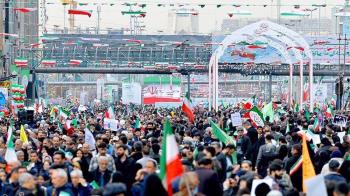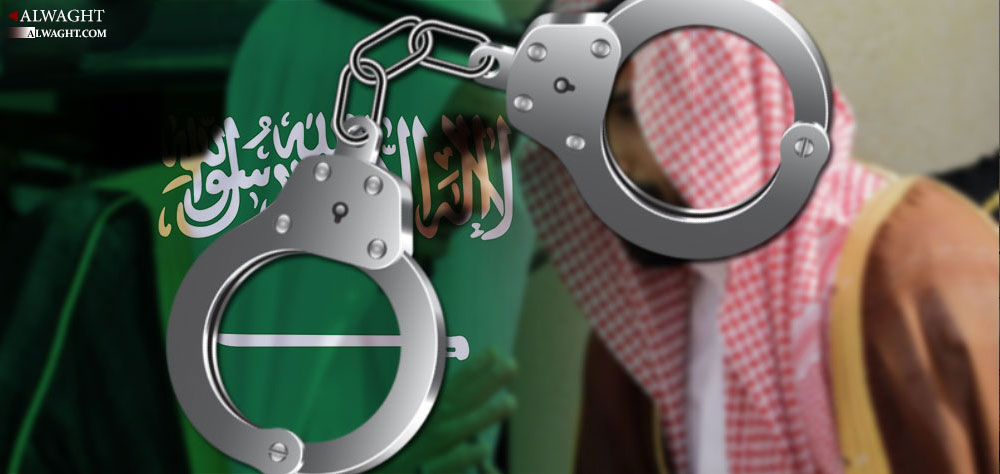Alwaght- Saudi Arabia has arrested tens of princes as well as present and former government ministers on charges of massive corruption.
Reports suggested that the arrests came by order of King Salman and are made by the National Anti-Corruption Commission which was established recently and is headed by the Crown Prince Mohammad bin Salman.
The Arab news outlets offered various figures about number of the detainees, but Al-Arabiya, a state-run Saudi news channel, specified that at least 11 royals, 4 present officials, and a number of former government officials were arrested.
Beside the sweeping wave of detention targeting the princes, the Saudi news media suggested that two current cabinet ministers were dismissed by separate royal decrees. They were immediately arrested, the media added. Prince Mutaib bin Abdullah, the minister of the National Guard and son of the former King Abdullah bin Abdulaziz, as well as Adel bin Mohammed Faqih, the minister of economy, are the top ministers ousted by the royal order.
Top billionaire detained
The list of the detainees also included Al-Waleed bin Talal, the rich Saudi prince who is regarded as the face of the Saudi Arabia's foreign business. His detention is expected to leave impacts on the global markets and business climate as a whole. He has big shares in the multinational bank Citigroup, and other major Western companies like Twitter, and News Corp. The prominent prince also owns several satellite channels with huge viewership across the Arab world. With nearly $18 billion in net worth as estimated by the Forbes magazine, bin Talal ranks 45th among the world’s richest people in 2017.
The news reports also said that the detention targeted Khaled al-Tuwaijry, the former chief of the Royal Court under the late King Abdullah, and Saleh Abdullah Kamel, the Saudi billionaire businessman, along with his son. More arrested people are Waleed al-Ibrahim, the chairman of the Middle East Broadcasting Center (MBC), and Bakr bin Laden, the chairman of the Saudi Binladin Group, who is accused of corruption, including bribing the officials of the Masjid al-Haram expansion project.
Bin Salman’s long step forward
As the reports say, the arrests and dismissals come by a direct decree from King Salman, but are implemented by the kingdom’s new anti-corruption body headed by the young Mohammad bin Salman who is simultaneously heir to the throne and holds post of defense minister. He is the world’s youngest defense minister. Mohammad bin Salman, 32, has been running a campaign of power gain and solidification since April 2015, the time his father ascended the throne replacing the late King Abdullah. He obtained the position of the crown prince in June after ousting two predecessors one in 2015 and the other this year.
Now the wide-ranging dismissal and arrest of dozens of the royal family members, which is almost rare in the history of the kingdom, is made under bin Salman, something confirmed by the official Saudi Arabian sources. But why did he all of sudden decide to make group detentions of the Saudi royals?
Economic reforms
As the Saudi media put it, the arrests are coming as part of the government crackdown on the economic corruption. They are possibly part of the course towards the Vision 2030, an economic and social development plan that is supposed to meet aims until the specified time. Earlier and during the late July G20 summit in Hamburg, Germany, the Saudi leaders pledged economic reforms through clampdown on corruption as well as money laundering. Now they claim that the wealthy princes' arrest comes according to the law and for economic transparency and fighting money laundering.
In a period when the Arab monarchy is grappling with economic hardships because of the heavy pressures on the national budget caused by foreign intervention including the war against the neighboring Yemen on the one hand and the low oil prices in the global markets on the other hand, it appears that bin Salman sets great hope on entry to the kingdom of foreign investment to realize the ambitious Vision 2030, which aims at distancing the kingdom from being an oil-dependent state, something requiring implementation of clear financial laws and gaining adequate international validity. There is an argument by the Saudi officials that the recent group arrests to hit roots of corruption and money laundering can pave the way for garnering trust of foreign investors.
But the analysts argue that jailing the rich princes as an anti-corruption measure looks very superficial and is mainly aimed to run a media propaganda campaign. The analysts add that a prerequisite to implementation of laws to target corruption is a democratic system, or at least a constitutional monarchy with duty to be responsible to the supervisory and law enforcement institutions. While Saudi Arabia is an absolutely-ruled state with the full power in the hands of the king and the royal family, striking the roots of economic vice and offering a transparent picture of the economic climate to the foreign investors remains simply a dream, with moves towards it quite symbolic.
Fighting the corruption or the opponents?
At the same time, it is clear to nearly all that the goal of the purge goes beyond corruption and is a political step aimed at removing the potential opposition as the heir finds the opportunity ripe for solidification of his strength among the other royals.
The Reuters news agency in a report shed light on the political agenda of bin Salman in relation to the recent royal purging, adding that replacing Khaled bin Ayyaf with the dismissed Mutaib bin Abdullah as the minister of the powerful National Guard as well as Mohammad al-Tuwaijri with the sacked Minister of Economy Adel bin Mohammed Faqih was a step towards the crown prince’s tightening of grip on power.
Mutaib bin Abdullah was regarded as one of the key options to the throne before rise of Salman. Before bin Salman became the crown prince, various branches of the ruling family were holding parts of the three security and military institutions in the country. Mutaib was the last of the King Abdullah family in the court to still hold a top job in the highest levels of power in Riyadh.
Another change came in the military area where Abdullah al-Sultan, the commander of the Saudi navy, was sacked from his position also under the name of crackdown on corruption.
With dismissal of the son of the late King Abdullah as well as the influential navy commander, bin Salman brings under his sway the military institutions, including the army, police, and the National Guard. This arrangement will ease his concerns about possible military coup or intervention as he gradually takes the track towards the throne.
Among the detainees, Khaled al-Tuwaijry, the prince who ahead of the succession called Salman “mentally-ill”, is calling attention. While the kingdom was preparing to its new king in early 2015, al-Tuwaijri claimed that Salman was mentally unhealthy in a bid to keep him from the throne, but his efforts proved a failure. Now son of Salman is powerfully pressing ahead with the campaign of purging of the opponents, including al-Tuwaijri.
It appears that by neutralizing many of the powerful princes at least on political charges bin Salman can now considerably repulse the internecine threats against the house of Salman.
Making Money
What is less highlighted in the recent Saudi royal family tumult is the profits made by the young crown prince as a result of detention wave. Various sources familiar with the situation named arrested princes and added that the value of their seized assets, which will go to the ruler, was close to 2 trillion Saudi riyals (over $530 billion).
Mujtahed, a Saudi social media whistle-blower, commented in a Twitter post on the detention of18 princes and a number of businessmen, adding that bin Salman made the decision also driven by a desire to seize their properties.
The value of the assets taken over by the Saudi authorities becomes more clear if we know that last week the New York Stock Exchange announced that $125 billion was worth of only 5 percent of the Saudi state oil giant Aramco IPO after initial price exploration enlisting. Riyadh intends to sell the share to make up for the budget deficit and also raise money for its Vision 2030 initiative. The royal assets seizure will provide the government with money four times as much as the value of 5 percent of the shares of the national oil company. This perhaps defines how much the arrests could be vital to the crisis-hit Saudi economy.



























